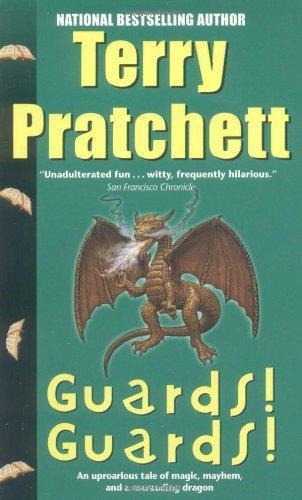Recently I had a chat with my friend from China about moral relativism and absolute evil. There I said, perhaps verbatim, "there is no 100% right things, but there are 100% wrong things".
For Pratchett's Patrician, the statement is even stronger. There are no right things at all:
“I believe you find life such a problem because you think there are the good people and the bad people,” said the man. “You’re wrong, of course. There are, always and only, the bad people, but some of them are on opposite sides.”
He waved his thin hand toward the city and walked over to the window.
“A great rolling sea of evil,” he said, almost proprietorially. “Shallower in some places, of course, but deeper, oh, so much deeper in others. But people like you put together little rafts of rules and vaguely good intentions and say, this is the opposite, this will triumph in the end. Amazing!” He slapped Vimes good-naturedly on the back.
“Down there,” he said, “are people who will follow any dragon, worship any god, ignore any iniquity. All out of a kind of humdrum, everyday badness. Not the really high, creative loathesomeness of the great sinners, but a sort of mass-produced darkness of the soul. Sin, you might say, without a trace of originality. They accept evil not because they say yes, but because they don’t say no. I’m sorry if this offends you,” he added, patting the captain’s shoulder, “but you fellows really need us.”
I don't know, and I doubt anyone knows, how burned-out Pratchett himself was on the idea of rafts and how senseless he felt is fighting status quo. But he documented these thoughts precisely and repeatedly, reminding everyone over and over of dangers of totalitarianism and autocracy.
That slice, in modern days, is as relevant as in twenties of the century past, but this is a five-star book because it has everything: love, character development, wit, plot twists, and a massive foreshadowing, which -- I must admit -- I didn't pick up on during the initial reading of the book.



